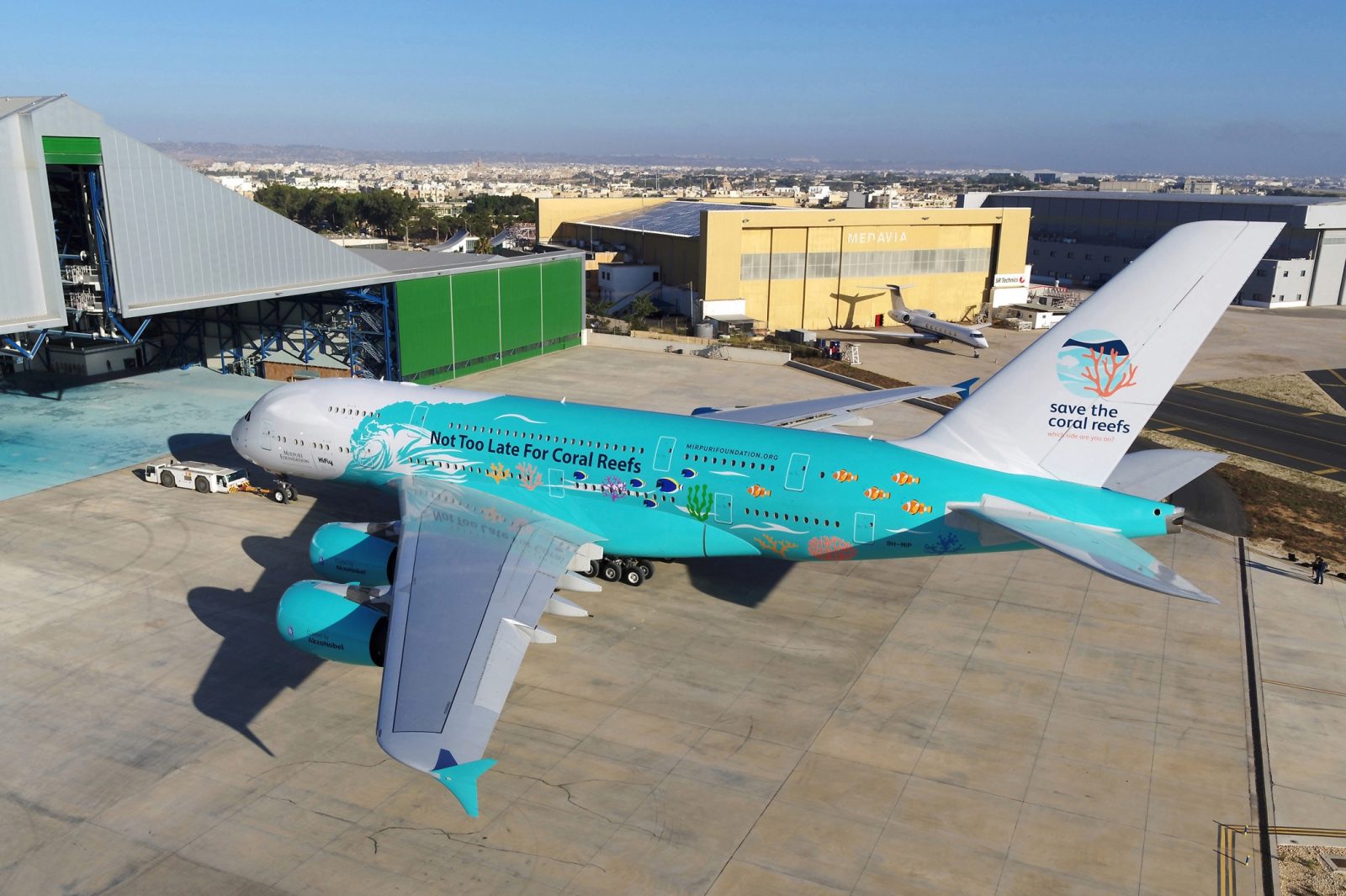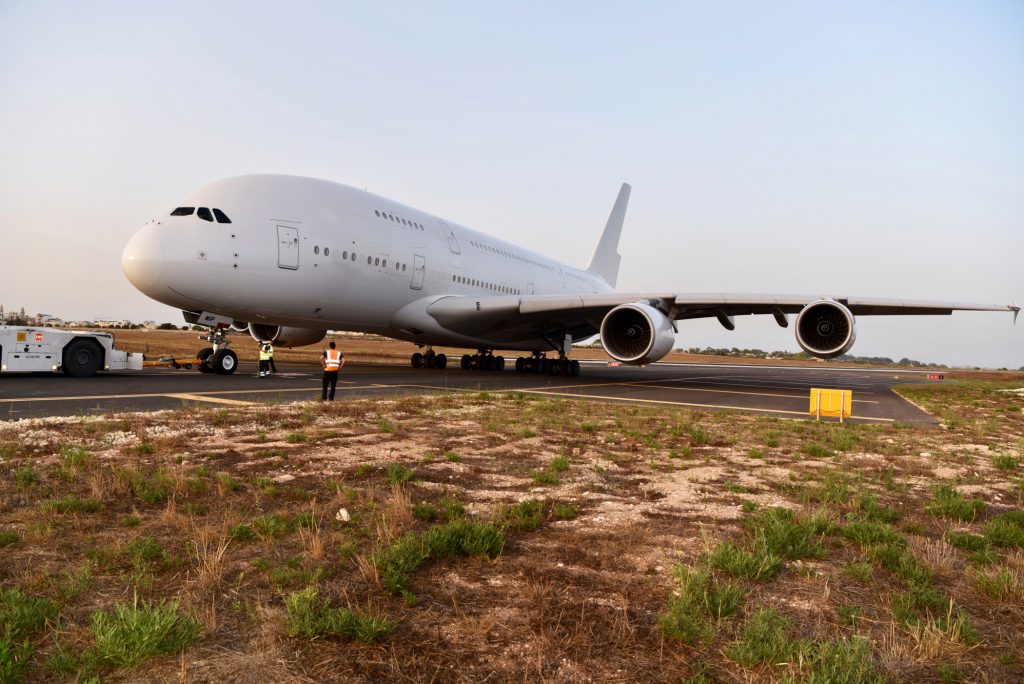
The Portuguese charter operator Hi Fly is set to dump its only Airbus A380 superjumbo after operating the double-deck aircraft for just three years, blaming the COVID-19 pandemic for the demise of the plane. Announcing the decision on Tuesday, Hi Fly said it had decided not to extend an initial three-year lease because the Corona crisis had “drastically reduced the demand for very large aircraft.”
Hi Fly is what is known as a ‘wet lease’ carrier whereby other airlines can hire both the aircraft and crew to operate flights during times of increased demand. The carrier also operates a charter service and the Hi Fly A380 was pressed into action at the start of the pandemic to repatriate thousands of stranded tourists as borders suddenly closed and other airlines grounded their fleets.

While there was some demand for the Hi Fly A380 in the early days of the pandemic, in recent weeks the Lisbon-based airline has been touting a cargo-configured version of the plane with most of the seats ripped out to make space for freight to be carried in the cabin.
Hi Fly took delivery of the ex-Singapore Airlines plane in July 2018, complete with the old fixtures and fittings including Singapore’s First Class suites with sliding doors and Business Class seats.
In the early days, the Hu Fly quickly found business for its A380, notably helping out low-cost carrier Norwegian after problems with its Boeing 787 Dreamliners grounded the jets for months at a time.
“Hi Fly belongs to the very exclusive club of only 15 airlines to ever operate the A380, the largest and most advanced aircraft of all times. This aircraft was a testimony to how far human beings can go in developing something so extraordinary,” the airline said in a statement on Tuesday.
“The Airbus A380 will be replaced in the Hi Fly fleet by additional Airbus A330’s, a smaller and more adequate aircraft for current market conditions,” the statement continued.
After taking delivery of the plane from Singapore Airlines, the plane was repainted in a distinctive “Save the Coral Reefs” livery. Powered by four Rolls Royce Trent 900 model, the plane was capable of carrying 471 passengers, including 12 in the First Class Suites and 60 in Business Class.
A high-density version of the A380 can carry as many as 853 passengers – far more capacity than any airline will likely need for years to come.
Air France has already retired its entire fleet of A380’s this year, blaming the Coronavirus pandemic for ending their life earlier than originally planned. Lufthansa has also put its A380’s into longterm storage and could scrap the planes altogether unless there’s an “unexpected” and “rapid” market recovery.
Elsewhere, Qatar Airways doesn’t expect to fly its A380’s for at least several years, while Etihad Airways is still to make a decision on the longterm future of its A380 fleet. In the meantime, the double-deck planes remain grounded.
Emirates, however, still has faith in the future of the A380 and hopes it will be an important part of its fleet for years to come.
Mateusz Maszczynski honed his skills as an international flight attendant at the most prominent airline in the Middle East and has been flying ever since... most recently for a well known European airline. Matt is passionate about the aviation industry and has become an expert in passenger experience and human-centric stories. Always keeping an ear close to the ground, Matt's industry insights, analysis and news coverage is frequently relied upon by some of the biggest names in journalism.







